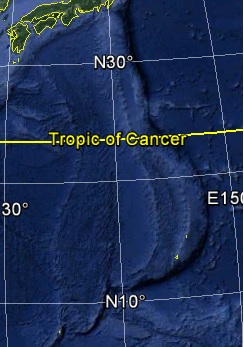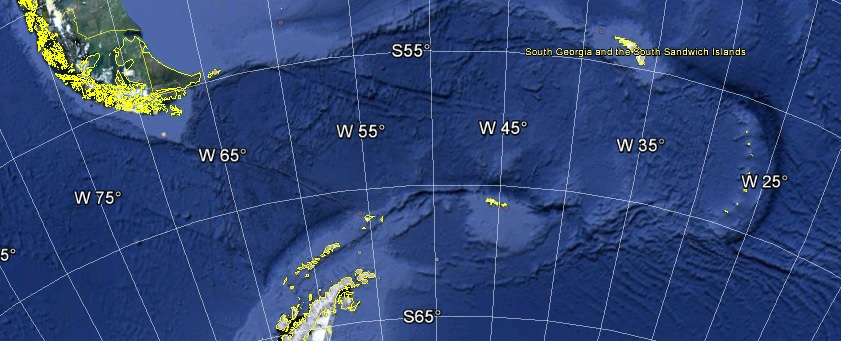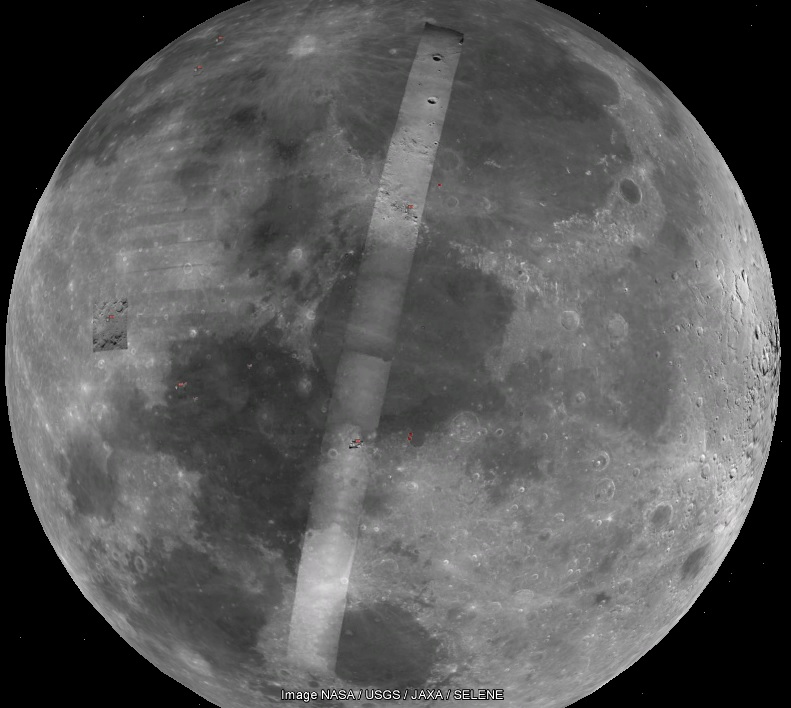It looks like you're using an Ad Blocker.
Please white-list or disable AboveTopSecret.com in your ad-blocking tool.
Thank you.
Some features of ATS will be disabled while you continue to use an ad-blocker.
share:
You were probably told something like the Earth is the only planet in our solar system with plate tectonics (though recent discoveries raise questions about possible plate tectonics on Mars). There are other bodies in our solar system that have quakes:
originally posted by: centrifugal
Not a geologist but I was taught that earthquakes were unique to Earth
Quakes
A quake is the result when the surface of a planet, moon or star begins to shake, usually as the consequence of a sudden release of energy transmitted as seismic waves, and potentially with great violence.[1]
Types of quakes include:
Contents
1 Earthquake
2 Moonquake
3 Marsquake
4 Venusquake
5 Planetquake
6 Sunquake
7 Starquake
Of course the moon doesn't have earthquakes it has moonquakes but that's semantics, both are quakes.
edit on 2016617 by Arbitrageur because: clarification
originally posted by: centrifugal
There is absolutely no observable proof that anything spherical, moon or otherwise has had contact, or collided with the earth, at anytime in its history. And even if there were such evidence, direct or circumstantial, if it doesn't fit into their "View" of Earth, it will never be addressed.
and that the crust was basically shattered when the moon collided with earth in the early formation of the solar system.


Myth, old stories, rumors, religious teachings, are not to be considered, or, translated into a realistic context.
And of course the hollow earth Mormon 13th tribe probably causes earthquakes too. Obviously
Maybe, they should
Thank you for your input.
a reply to: All Seeing Eye
dinox.org? Seriously? Your souce-fu is lacking young Padawan. Plus there's a reason why oceanic plates don't date back more then 200 million years. It's because of subduction. Again. This is getting very boringly one-sided.
dinox.org? Seriously? Your souce-fu is lacking young Padawan. Plus there's a reason why oceanic plates don't date back more then 200 million years. It's because of subduction. Again. This is getting very boringly one-sided.
a reply to: All Seeing Eye
Absolute rubbish. The moon was born out of a collision between the Earth and a Mars-sized bolide early in its history. How do we know that? Simple. Moon rocks and an analysis thereof.
Oh and please keep linking those pictures. The one of the Mariana Islands and Mariana Trench (Subduction! Volcanism!) keeps proving my point very nicely.
Absolute rubbish. The moon was born out of a collision between the Earth and a Mars-sized bolide early in its history. How do we know that? Simple. Moon rocks and an analysis thereof.
Oh and please keep linking those pictures. The one of the Mariana Islands and Mariana Trench (Subduction! Volcanism!) keeps proving my point very nicely.
a reply to: AngryCymraeg
The moon, oddly has these circular darker areas. Wonder how they got that way.

Now how on earth would earth water, get on the moon????


Identical? IDENTICAL? Moon water is IDENTICAL to earth water??? I wonder if its salty.......
I wonder what type of mark would be left if, lets say its possible, to dip the moon in our ocean water. Round dark, area?
But EVERYONE KNOWS, that's not possible. Right? Right? Or that it is possible to reverse the rotation of the earth.
Well, except maybe the Muslims.
Rise of the Sun from the West
And one other thing to consider when speaking of Science. But I think John Oliver puts it nicely.
Is Science Bullsh*t? John Oliver Explains The Corruption Behind Scientific Studies
I agree, absolute, Rubbish..
Absolute rubbish. The moon was born out of a collision between the Earth and a Mars-sized bolide early in its history
The moon, oddly has these circular darker areas. Wonder how they got that way.
It's Official: Water Found on the Moon
"The isotopes of oxygen that exist on the moon are the same as those that exist on Earth, so it was difficult if not impossible to tell the difference between water from the moon and water from Earth," said Larry Taylor of the University of Tennessee, Knoxville, who is a member of one of the NASA-built instrument teams for India's Chandrayaan-1 satellite and has studied the moon since the Apollo missions.

Now how on earth would earth water, get on the moon????


Identical? IDENTICAL? Moon water is IDENTICAL to earth water??? I wonder if its salty.......
I wonder what type of mark would be left if, lets say its possible, to dip the moon in our ocean water. Round dark, area?
But EVERYONE KNOWS, that's not possible. Right? Right? Or that it is possible to reverse the rotation of the earth.
Well, except maybe the Muslims.
Rise of the Sun from the West
And one other thing to consider when speaking of Science. But I think John Oliver puts it nicely.
Is Science Bullsh*t? John Oliver Explains The Corruption Behind Scientific Studies
edit on PMFridayFriday thAmerica/ChicagoAmerica/Chicago49610 by All Seeing Eye because: Addition of John Oliver
originally posted by: AdmireTheDistance
a reply to: All Seeing Eye
What are you on about?
I have no idea either. The Mariana Trench is a subduction zone (he's desperate to pretend otherwise as there's a lovely row of volcanoes to the West of the Trench called the Mariana Islands that PROVES subduction) and the Scotia Arc is a lovely example of a transform fault system along with rifting. Nothing whatsoever to do with the Moon.
This is all very, very, one-sided right now. I feel like a victory lap.
originally posted by: AdmireTheDistance
a reply to: All Seeing Eye
What are you on about?
I absolutely love your avatar. It speaks multitudes. Now, that is a "All Seeing Eye" lol lol.
In the end, beauty is in the "eye" of the beholder, but so too, is truth. And I have seen that some truths are ugly filthy things. And some, well, simply divine.
Ive often wondered if some "things" are intentionally held just outside of our reach for a reason. And that reason may well be beyond our ability to grasp. Then, there are things that appear to be out of reach, but we only have to reach for it, to attain it.
Now, looking at the reassembled jig saw puzzle pieces from above, if given all is true, then it becomes obvious that Earth's axis has been adjusted or modified in the distant past. It becomes a debate from there whether it was a adjustment that was carried out by an intelligence, or a strange fluke of nature. The Mariana Trench stripes or scars, seeing how they are so close together and in such close proximity to each other would indicate intent, and intent would indicate, intelligence. It would also indicate that the intelligence that had accomplish this, is far beyond our present state of "Science", but, it did take them 3 tries The fact that these adjustment scars are hidden by the oceans may have been for a reason of concealment, or, intentional effect. In either case, any global coastal communities of life forms would have been inundated by the waves that would have been created.
So, was this adjustment intentionally hidden from life forms to follow, or was it a oversight of this intelligence that eventually it would be discovered.
There are other questions that could be asked, and trains of thought to be followed. One thing for certain is, our planet is very very fragile. If the expanded earth theory is correct, then, the crust of the planet is no where near as thick as it was when these scars were laid down. Any such contact today, could lead to planetary destruction.
Personally, I think "Science" should get its head out of the sand and stop worshiping "Subduction" as a catch all. We, are wasting time.......
a reply to: All Seeing Eye
"Earthquakes are Proof of a Expanding Earth."
Well i suppose since according to the data which suggests our Earth is heating up we should not be surprised, considering that's what most things do when you heat them up, they expand.
"Earthquakes are Proof of a Expanding Earth."
Well i suppose since according to the data which suggests our Earth is heating up we should not be surprised, considering that's what most things do when you heat them up, they expand.
edit on 18-6-2016 by andy06shake because: (no reason given)
You're talking about the atmosphere, but the atmosphere isn't the Earth itself. The Earth has been measured to see if it's expanding and no statistically significant expansion was found.
originally posted by: andy06shake
a reply to: All Seeing Eye
"Earthquakes are Proof of a Expanding Earth."
Well i suppose since according to the data which suggests our Earth is heating up we should not be surprised, considering that's what most things do when you heat them up, they expand.
Scientists measure whether Earth is expanding or contracting
scientists estimated the average change in Earth's radius to be 0.004 inches (0.1 millimeters) per year, or about the thickness of a human hair, a rate considered statistically insignificant.
"Our study provides an independent confirmation that the solid Earth is not getting larger at present, within current measurement uncertainties," said Wu.
edit on 2016618 by Arbitrageur because: clarification
a reply to: Arbitrageur
Hell of a lot more than just our atmosphere expands when heated through. As to whether or not our Earth applies, well i cant see why it would not. Whether or not the expansion is significant depends on the temperature i imagine.
Hell of a lot more than just our atmosphere expands when heated through. As to whether or not our Earth applies, well i cant see why it would not. Whether or not the expansion is significant depends on the temperature i imagine.
And when you view all the rifts ejecting magma, or lave, or super heated rock, heat expands. Couple with the fact that, magma, lave, molten rock, is also a liquid, a very thick molten hot, liquid, that acts as mother natures hydrolic jack, jacking the plates apart.
originally posted by: andy06shake
a reply to: All Seeing Eye
"Earthquakes are Proof of a Expanding Earth."
Well i suppose since according to the data which suggests our Earth is heating up we should not be surprised, considering that's what most things do when you heat them up, they expand.
I love real science.
Does it? Take a tour of an underground cave sometime. When I did that the tour guide commented that the cave temperature was relatively insensitive to surface temperature and stayed about the same temperature year round, whether it was very hot or very cold on the surface.
originally posted by: andy06shake
a reply to: Arbitrageur
Hell of a lot more than just our atmosphere expands when heated through.
The ocean heats up somewhat but even with the ocean the concern isn't that the water in the ocean will expand (it will slightly) but that the ice will melt and cause sea levels to rise, and it could be argued that is not really evidence of an expanding Earth, it's just a change in sea level.
a reply to: Arbitrageur
Even NASA understands information is subject to change, and sometimes, without notice.
I apologize for bringing this up, but your link has a disclaimer at the very top.
The Earth has been measured to see if it's expanding and no statistically significant expansion was found.
www.nasa.gov...
Disclaimer: This material is being kept online for historical purposes. Though accurate at the time of publication, it is no longer being updated. The page may contain broken links or outdated information, and parts may not function in current web browsers. Visit NASA.gov for current information
Even NASA understands information is subject to change, and sometimes, without notice.
a reply to: All Seeing Eye
Feel free to post more updated information about the measurements if you have it. Scientific papers are generally "not maintained", they are published. Then if new data becomes available that supercedes the previous paper(s) the new paper(s) are published. But if you don't have any new papers showing a different result then I'm not sure why you would mention this.
Feel free to post more updated information about the measurements if you have it. Scientific papers are generally "not maintained", they are published. Then if new data becomes available that supercedes the previous paper(s) the new paper(s) are published. But if you don't have any new papers showing a different result then I'm not sure why you would mention this.
a reply to: Arbitrageur
My understanding is that most matter, of which our earth is comprised, expands when heated and contracts when cooled, a principle called Thermal Expansion.
"Thermal expansion is the tendency of matter to change in shape, area, and volume in response to a change in temperature,[1] through heat transfer."
en.wikipedia.org...
My understanding is that most matter, of which our earth is comprised, expands when heated and contracts when cooled, a principle called Thermal Expansion.
"Thermal expansion is the tendency of matter to change in shape, area, and volume in response to a change in temperature,[1] through heat transfer."
en.wikipedia.org...
edit on 18-6-2016 by andy06shake because: (no reason given)
a reply to: andy06shake
It is the atmosphere and oceans of the Earth which are warming (and expanding).
It is the atmosphere and oceans of the Earth which are warming (and expanding).
Yes but the point you're not getting is that the vast majority of the Earth's mass is probably not affected much by atmospheric temperature changes. So if the only thing heating or cooling is a very thin layer near the surface, that probably won't amount to much change in the Earth's size. I wouldnt' be surprised if the diameter of the Earth shrunk by a few centimeters during an ice age but that's too trivial an amount to have any relationship to the claims in this thread.
originally posted by: andy06shake
a reply to: Arbitrageur
My understanding is that most matter, of which our earth is comprised, expands when heated and contracts when cooled, a principle called Thermal Expansion.
en.wikipedia.org...
a reply to: andy06shake
It's a matter of degree.
If the Earth's crust were to be significantly heated it would expand. What the OP is talking about is an extremely significant expansion. Significant enough to separate the continents. The world is not heating that much.
It's a matter of degree.
If the Earth's crust were to be significantly heated it would expand. What the OP is talking about is an extremely significant expansion. Significant enough to separate the continents. The world is not heating that much.
edit on 6/18/2016 by Phage because: (no reason given)
new topics
-
Thanking a rosemary plant
General Chit Chat: 2 hours ago -
Unidentified Flying Objects Over U.S. Military Bases in Northeast UK, as of roughly 11 a.m. CST.
Aliens and UFOs: 3 hours ago -
Holy Cow! Erm...Six Legged Turkey!!
World Sports: 7 hours ago -
Ben Habib has Left Reform UK
Regional Politics: 10 hours ago -
Turkey Day Rhyme…
Short Stories: 11 hours ago -
Can someone please translate Biden's speech?
US Political Madness: 11 hours ago
top topics
-
Vladimir Putin's speech at the meeting of the CSTO Collective Security Council
World War Three: 15 hours ago, 9 flags -
NIH Chief Confesses COVID Initiatives Were "Completely Made Up " OMG Investigates
Health & Wellness: 12 hours ago, 9 flags -
Can someone please translate Biden's speech?
US Political Madness: 11 hours ago, 8 flags -
Unidentified Flying Objects Over U.S. Military Bases in Northeast UK, as of roughly 11 a.m. CST.
Aliens and UFOs: 3 hours ago, 8 flags -
Awesome Dip Recipe
Food and Cooking: 15 hours ago, 5 flags -
Turkey Day Rhyme…
Short Stories: 11 hours ago, 5 flags -
Ben Habib has Left Reform UK
Regional Politics: 10 hours ago, 4 flags -
Holy Cow! Erm...Six Legged Turkey!!
World Sports: 7 hours ago, 2 flags -
Thanking a rosemary plant
General Chit Chat: 2 hours ago, 2 flags
active topics
-
Russia Ukraine Update Thread - part 3
World War Three • 6891 • : worldstarcountry -
Unidentified Flying Objects Over U.S. Military Bases in Northeast UK, as of roughly 11 a.m. CST.
Aliens and UFOs • 12 • : TheMisguidedAngel -
-@TH3WH17ERABB17- -Q- ---TIME TO SHOW THE WORLD--- -Part- --44--
Dissecting Disinformation • 3397 • : Crazierfox -
The Party of Peace - Trump Cabinet Picks Targeted with Death Threats
US Political Madness • 47 • : Astrocometus -
Vladimir Putin's speech at the meeting of the CSTO Collective Security Council
World War Three • 65 • : TheMisguidedAngel -
Thanking a rosemary plant
General Chit Chat • 2 • : visitedbythem -
V.P. Kamala Harris releases a video and nobody understands why
US Political Madness • 93 • : Astrocometus -
Holy Cow! Erm...Six Legged Turkey!!
World Sports • 4 • : JJproductions -
Why isn't Psychiatry involved?
Social Issues and Civil Unrest • 17 • : lilzazz -
Traveling the world with no passport
Social Issues and Civil Unrest • 12 • : andy06shake
